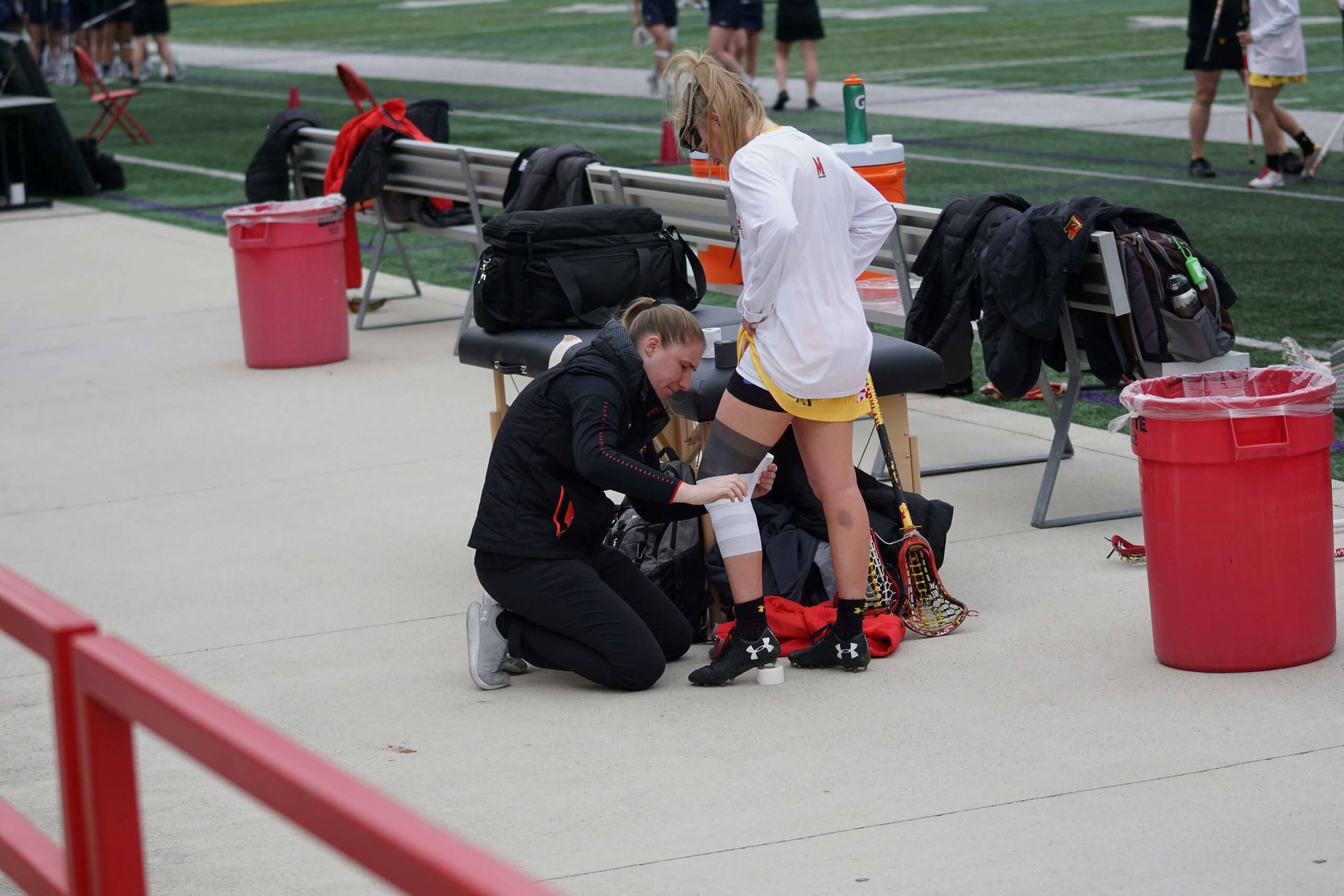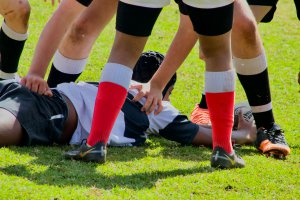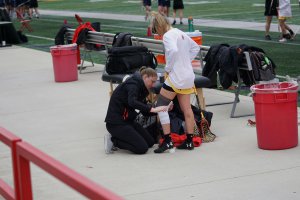Insight From a NJ Teen Therapist
As a parent of a teen athlete, you know how much their sport means to them. It’s more than a physical activity—it’s a source of identity, social connection, confidence, and purpose. So when an injury happens, it doesn’t just affect their body. It can deeply impact their emotional wellbeing, self-esteem, and mental health.
You may have already helped them through surgeries, doctor visits, and physical therapy—but what about the emotional scars? The fear of reinjury? The anxiety about returning to sport? That’s where EMDR therapy comes in.
What is EMDR?
EMDR (Eye Movement Desensitization and Reprocessing) is a type of therapy originally developed to treat trauma, but is now being used to help young athletes cope with the emotional and psychological effects of injury.
It works by using bilateral stimulation, a gentle, back-and-forth rhythm created through eye movements, alternating sounds, or light tapping. This helps activate both sides of the brain, allowing it to process and release difficult memories or emotions that may be stuck—kind of like helping your brain finish something it didn’t get tocomplete the first time.This process allows your teen to feel calmer and less emotionally triggered when thinking about their injury or returning to their sport.
Something that makes EMDR different from talk therapy is that it does not require your teen to relive or explain every detail of their experience. It’s a gentle, structured way to help their brain finish the healing process it may have gotten stuck on. It’s not a quick fix, but it can be a powerful complement to physical rehab—especially for those who are emotionally stuck despite being physically ready.
Why an EMDR therapist in Somerville, NJ can help more Than Physical Rehab
Athletic injuries can trigger far more than physical pain. They can bring up fear, shame, grief, or even identity confusion. While many teens may be physically cleared to return to their sport, they may not feel ready mentally or emotionally.
This may look like-
- A gymnast who peeled off the high bar during a release move, now grips too tightly or avoids attempting it altogether.
- A football player flinches at contact drills, fearing the same shoulder injury.
- A dancer feels disconnected from her body and panics during choreography.
- A swimmer dreads competition day, haunted by the moment she was injured off the blocks.
This hesitation isn’t laziness or lack of motivation—it’s the brain protecting them from reliving a traumatic moment. But over time, those protective responses can become blocks. EMDR helps remove those blocks so your teen can return with confidence.
How EMDR Therapy in NJ Can Help Your Teen Athlete
1. Process the Moment of Injury
Even if it seemed “minor,” the moment of injury can be traumatic. EMDR helps your teen process that memory without having to talk through it repeatedly, reducing flashbacks, fear, or emotional distress.
2. Reduce Fear of Reinjury
Fear is common, especially when returning to the same movement or skill that caused the injury. EMDR helps lower anxiety and rebuild trust in their body.
3. Restore Confidence
Being out of the game can make teens feel like they’ve lost their edge—or worse, their identity. EMDR works with underlying thoughts like “I’m not good enough anymore” or “I’ll never come back from this.” Shifting these beliefs helps restore confidence and resilience.
4. Support Emotional Regulation
Injured teens often feel isolated, irritable, or even depressed. EMDR helps them better regulate emotions, especially if they’re bottling feelings up or struggling to communicate what’s going on inside. Furthermore it is used to develop and strengthen coping skills to utilize when outside the therapy session.
How You Can Support Your Teen
- Validate their feelings. Even if they’re physically okay, it’s normal to feel anxious, fearful, or sad after an injury.
- Watch for signs. Avoidance, irritability, lack of motivation, or emotional outbursts can be clues that something deeper is going on.
- Encourage patience. Emotional recovery takes time—just like physical rehab. But both are part of a full comeback.
Your teen’s injury is just one chapter in their athletic story—not the end of it. With the right tools, they can come back not only stronger in body, but braver in spirit.
EMDR offers a way to help them move forward from fear, rediscover confidence, and feel like themselves again. And as a parent, supporting their emotional recovery is one of the most powerful things you can do.
Start Therapy for Teens In Branchburg, NJ or Scotch Plains, NJ
If your teen is an athlete and needs support in coping with the challenges after injury, our team of teen counselors in Branchburg and Scotch Plains, NJ would be happy to offer in-person and remote support. Online therapy for teens can help from anywhere in New Jersey. Brave Minds Psychological Services is here to support you and your teen. Start by following these steps.
- Reach out to us to talk with a teen counselor.
- Make your first counseling for teens appointment at Brave Minds Psychological Services.
- Help your teen cope with the challenges of an injury
Experiencing Other Traumas? EMDR therapy in Scotch Plains, NJ and Branchburg NJ is Available.
Brave Minds Psychological Services is happy to offer therapy for a variety of traumas such as, child sexual abuse therapy, therapy for birth trauma, equestrian-related accidents and more. EMDR isn’t the only service offered by our practice. Our team understands that you may be experiencing more than one mental health concern, which is why we are happy to offer a variety of services to support your overall well-being. We provide couples counseling, postpartum counseling, and food allergy anxiety support. Our caring counselors provide mental health services for adults, teens, and children. We offer treatment for teen anxiety, social phobia in teens, child anxiety, and more. Prefer building a support network with group therapy? Our therapists also offer several options for group therapy. Our services are offered in person at our Scotch Plains NJ and Branchburg NJ office and through online therapy in New Jersey.






